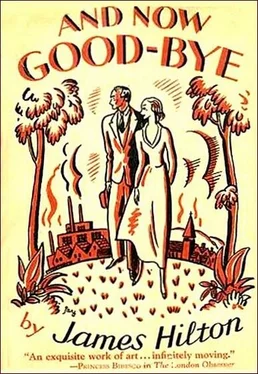Howat read through the enclosed and illustrated brochure, but did not tear it up afterwards as he had done the other advertising matter. Instead he put it away in the middle drawer of his desk; it would do for Ringwood to see some time—he would be amused.
Still with the trace of a smile he tore open one of the remaining envelopes. A coloured picture dropped out and fell at his feet, making a little patch of brightness on the drab carpet. He picked it up, guessing it to be a sample sent him by some firm of art publishers—Raphael’s “Saint Catherine of Alexandria”, he recognised, for he had often admired the original in the National Gallery. The reproduction pleased him, and he was still examining it when he perceived a handwritten note in the envelope. It was just the shortest of messages—“Dear Mr. Freemantle, I am afraid I shall not be able to come for a lesson on Tuesday, as I shall be out of Browdley that day. I saw the enclosed in a shop recently and thought you might like it. Yours sincerely, Elizabeth Garland.”
His first thought was that he would have an extra free hour on the following day. Every Tuesday for some months past he had been giving lessons in German to Miss Garland, the daughter of his chapel secretary. It was a means of adding to his rather poor income, besides which it meant rubbing up his own knowledge of German, which was good for him. She was a pleasant and intelligent girl, and had seemed to pick up the language quite satisfactorily; still, he could not but feel grateful for one engagement less during a more than usually crowded week.
He studied the picture again and reflected that it was kindly of the child to have sent it him—yes, very kindly. There was something boyish and simple in him that showed instantly when anyone gave him anything, or even thanked him; he was always pleased in a rather bewildered kind of way—bewildered because he quite genuinely could not think what he had done to deserve it.
He put the picture on the mantelpiece, and several times looked towards it with pleasure during the clerical tasks that kept him employed during the next hour or so. Finally Aunt Viney came in, saw it, and smiled steadfastly while he explained the circumstances of its arrival. “Very kind of her indeed, Howat,” was her verdict at length, “but are you quite sure it is very suitable? After all, it looks rather a Catholic picture, don’t you think?”
Perhaps it was, he admitted, and put it away in a drawer. As a Nonconformist clergyman he could not be too careful.
Punctually at eleven he put on his overcoat and hat (an ordinary dark grey and somewhat shabby felt) and went out into School Lane. There, in the murky daylight that was only a degree brighter than the gloom of the study, it was possible for one to observe him in some detail. Tall and slim-built, with just the very slightest stoop of the shoulders that suggested thoughtfulness, he was, beyond doubt, fine-looking, and would have been conspicuous among his fellows even had his collar not buttoned at the back. His hair was touched with silver over the temples, but otherwise he looked younger than his age, which was forty-three. His eyes were grey, deep-set, and very bright; he had a strong, rugged profile, and an expression which, in its stern setting, was rather astonishingly winsome. Dr. Ringwood often told him he had missed his vocation in being a parson—he should have been an actor. “With that face you could have been the answer to the maiden’s prayer,” he used to say, and Howat was always, beyond his amusement, a little puzzled, and beyond his puzzlement, a little grieved. There seemed such a lot of irrelevance in the world. He was dimly aware that he might be considered not bad-looking, but, so far as the matter affected him at all, he found it rather tiresome. Some of the girls at the chapel, for instance, whenever there was a bazaar or a social—so silly and pointless, all that sort of thing. Anyhow, he had never tried to trade on his looks, and most certainly never attempted any gallant airs.
Proceeding along School Lane he entered the High Street. It had stopped raining, but the roadway and pavements were covered with a film of brown mud which glittered in the light of some of the shops. The sky was already yellowing into a kind of twilight; probably there would be fog again later on. People passed dimly by with a nod or a greeting—women doing their marketing, unemployed men lounging around, business folk bustling about the town, and so on. He had to keep his eyes well open—people were so offended if he didn’t see them, they were always prone to think he had cut them deliberately. Whom should he visit first? Higgs would be at his place in the High Street; Mrs. Roseway lived over at Hill Grove; there was young Trevis in Mansion Street, close by. Better leave Mrs. Roseway till afternoon—she wouldn’t like him to call before everything in the house had been put to rights’, though, Heaven knew, he wasn’t the man to notice whether things of that sort were right or not. Young Trevis then, it might as well be; and he was walking briskly along with this intention when a little girl suddenly ran up to him. “Please, Mr. Freemantle, Aunty says will you come and see her at once, as she’s been took very had in the night.”
He stared down with a kind of surprised vagueness and then identified the child as Nancy Kerfoot, one of his Sunday School youngsters. Her aunt, he knew, was Miss Letitia Monks, and lived in the end house in Lower George Street. “Very well, my dear,” he replied. “Run along and tell your Aunty I’ll come.”
It wouldn’t do to ignore a summons of that sort, despite the fact that he had been abruptly sent for by Miss Monks on several previous occasions. She was a character, the old lady, and he had always rather liked her, despite the fact that her piercing voice, her equally piercing eyes, her stern old- fashioned principles, and her quite spotless four-roomed cottage in which she lived on a very few shillings a week, made him feel uncomfortably like a large fly in the presence of a small but exceptionally strong-willed spider. There was something indubitably wonderful about her, he felt; she was eighty-nine, and had never been further away from Browdley than Blackpool. Moreover, she had worked in the same cotton-mill for half a century, had invested all her savings in that same cotton-mill, and during the last few years had lost the greater part of them.
He hastened towards Lower George Street, and outside the end house saw Ringwood’s battered Morris-Cowley. As he approached, Ringwood himself came out of the doorway—an elderly, apple-cheeked, rather shrewd- looking general practitioner.
“Hullo, Freemantle. You been sent for too?”
“Yes.”
“Go along then. Mustn’t keep you. It’s no false alarm this time, I’m afraid.”
“You think not?”
“Bet you a shilling not.”
Ringwood was always outrageously flippant about death. The other clergy in the town did not care for that, or for him either, but Freemantle found it an oddly bearable trait. He half-smiled, nodded, and passed through the open door into the front parlour which had never, he supposed, been used except for funerals, weddings, Christmas and other exceptional occasions. The fender was crowded with huge brass fire-irons that gleamed through the shadows as he passed to the narrow steep staircase beyond. A woman, doubtless a neighbour, called to him to come up. He obeyed, feeling his way in almost complete darkness, and was at last manoeuvred into a very small, hot, and dimly-lit bedroom.
Miss Monks was the oldest member of his chapel; she had belonged to it ever since its opening in 1860. She had regularly attended services twice every Sunday until quite recently; she had given generously to all chapel funds and charities; nor, during her prime, had she ever shirked personal duties. But that was only one side of the picture. For over four decades—ever since most people could remember—she had constituted herself a sort of super-authority to which all chapel questions must in the last resort be submitted. She had waged bitter and incessant warfare against anything and everything new, different, or experimental, and it was hardly an exaggeration to say that she had driven several parsons out of the town, and at least one into a home for the victims of mental breakdown. Of Freemantle himself she had misgivings, but they were weaker ones; and this was partly because she was getting old, partly because he was tactful, and partly (though neither she nor he realised or would have admitted it) because she was attracted by his face.
Читать дальше











